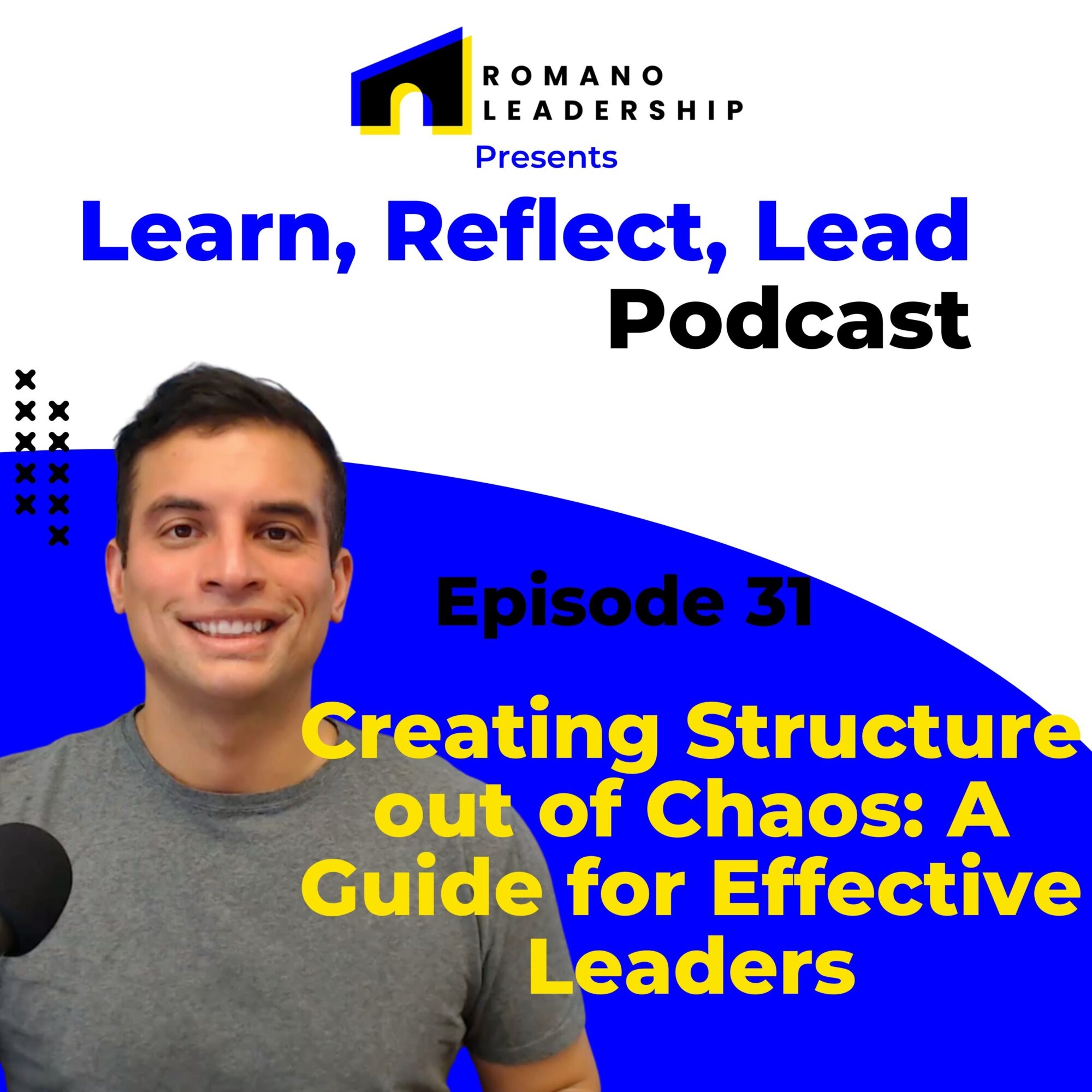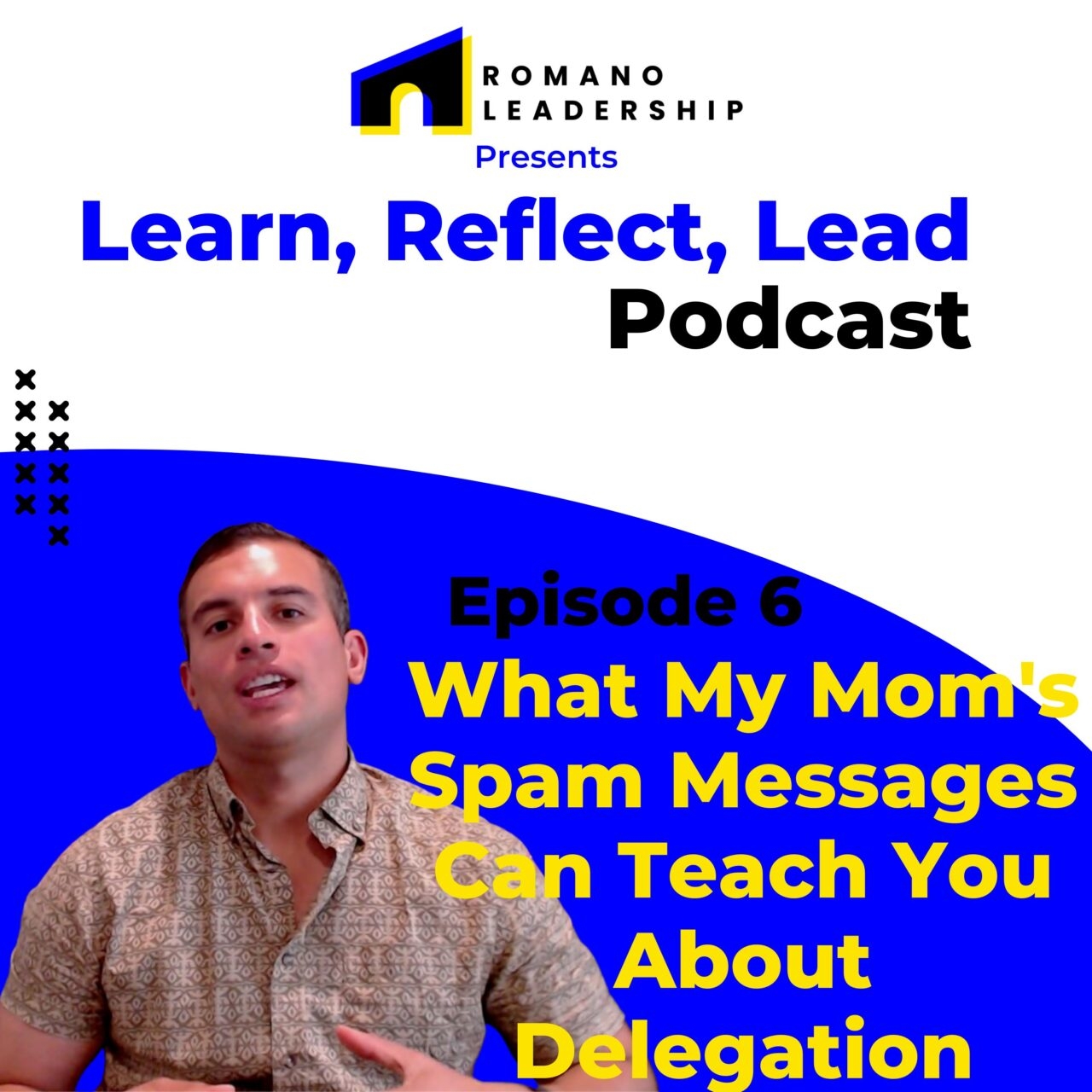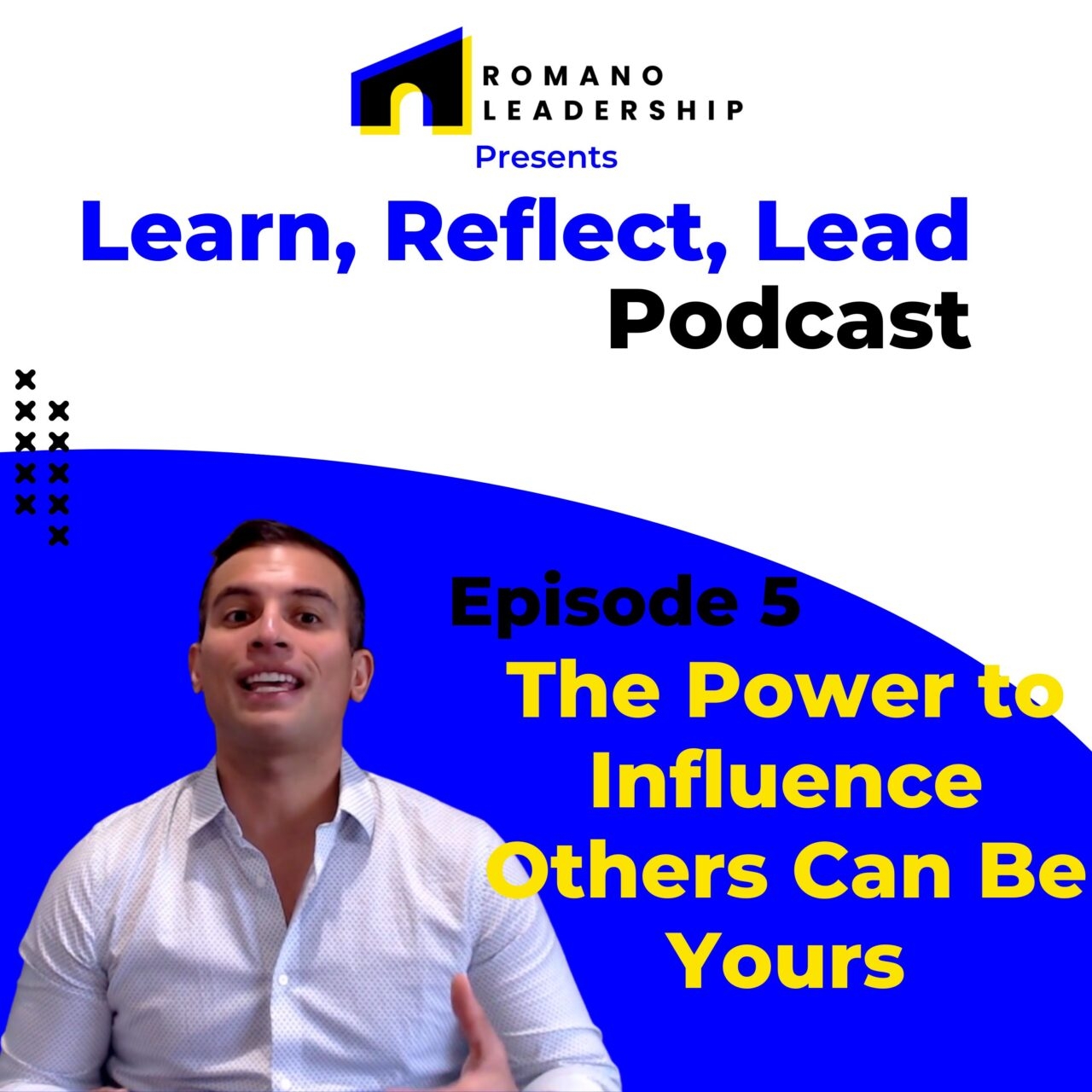Speaker 1 00:00:04 From Roman leadership. I'm Oscar Romano. This is learn, reflect lead leadership and DIA development for mission driven individuals and organizations. This is own your value, own your future.
Speaker 1 00:00:21 You don't deserve it. You can't do it. You're so disorganized, you're so dumb. You shouldn't have done that. I've heard these statements in my mind and I know others have to. These thoughts and others like them train us to believe that we don't have value even when the evidence is clear that we do. I'm here to tell you that you do have value and it's a disservice to yourself and the people around you. If they don't experience that value. Something is getting in the way of that happening. There is a story that we tell ourselves every day about who we are and what we bring to the table. If we aren't being intentional about our self storytelling, we can fall prey to negative and devaluing stories that can keep us distracted. Here are some examples of what that looks like. You take your knowledge and skills for granted after so many years of reading books, taking classes and refining your craft through on the job experience.
Speaker 1 00:01:22 You may find some something's easy or obvious. Unfortunately, when things seem easy to you, you're most at risk of discounting the value that your knowledge and skills can bring to others. You place a greater weight on your failures and your successes. When you make a mistake, your mind immediately starts recounting a list of your worst hits. Helping reinforce that making mistakes is normal for you. If somebody asks you to tell them about past successes and failures, you might struggle thinking of more than a few successes, but could talk their ear off. For counting failures, you shy away from praise. When somebody tells you that you did an excellent job on an assignment, you tell them it was no big deal. You might also start to talk about how anybody else would've been able to accomplish what you did. You downplay your accomplishments. If you win an award, you might tell yourself that it probably wasn't that hard to win it and that you were lucky.
Speaker 1 00:02:19 You might even tell those around you the same thing. There's some cognitive dissonance at work that can't connect the real you, the one who won the award with the internal you, the one who makes too many mistakes to combat the negativity that can take hold in our minds. You need to be clear by your own story and how it's disseminated to others. There are several actionable steps you can take to take hold of your story. The first is to gather data. Reach out to a close circle of connections for stories that reflect who you are in their eyes. Sometimes it can be difficult to recognize the value you have brought into the lives of those around you, so you need to look outwards where it's difficult for you to see your value. It'll shine brightly to those you've positively impacted, whether through an email, a phone call, or an in-person meeting.
Speaker 1 00:03:11 Simply asking a close circle of friends, colleagues, managers, for examples of how you've positively impacted them or what your most significant strengths are, can provide you with valuable data. You also create your own wall of fame, combat any mental chips down a list of your worst hits by taking the time to create a list of your successes, accomplishments, knowledge and skills. Don't neglect documentation of the knowledge and skills you've learned along the way and what it took to get there. The skill of leading a team, managing a project, or giving a presentation and the work it took to develop those skills should be recognized and celebrated. The facts, figures, procedures and statistics. You can now recite at a moment's notice, represent countless hours of independent learning and on the job experiences that you now hold in your knowledge bank, and you need to regularly practice ownership of your story.
Speaker 1 00:04:04 This looks like accepting praise without any qualifiers. If somebody shares any positive feedback with you, say thank you and nothing else. Own it and tell yourself that the praise is well deserved. Every time you say that it was nothing or the project was easier than expected, you're telling yourself that you're not deserving of that praise. If the project was easy, then that's because you spent a lot of time and energy acquiring the knowledge and skills that made that project easy to complete for you. Own your accomplishments. When you think about accomplishments you've had in the past or ones you're achieving at the moment, remind yourself why you deserve it. Talk to yourself about the blood, sweat, tears, and time you exhausted to get to that point, and don't be afraid to share with others when you reach the destination. It can be easy to forget what it took to get there and define yourself by your successes, not your failures.
Speaker 1 00:04:54 Don't allow your failures to define you and give yourself a reality check. If you start to focus on your failures after making a mistake, do this by fact, checking the negative thoughts or stories coming to mind and reminding yourself that those mistakes happen in the past and you learn from them. Flip the script on your thoughts and start to list all the accomplishments you've had in your past that prove you're more than your failures. Over time, I've pushed myself to be more intentional with my thoughts. You deserve it. You can do it. Everybody makes mistakes. You're a hard worker. These are some of the new statements I tell myself to help me own my value and my future. When I lead trainings on helping people overcome detrimental mindsets, these are the types of statements I tell 'em to focus on so that they can take meaningful steps toward owning their value. Own your value by controlling your story. Imagine what you could accomplish if the story you're told yourself every day. Where of positivity, successes, and the journeys you've completed. Imagine how much better op the people around you, you know will be if you unleash your actual value on them.
Speaker 1 00:06:04 That's it for this episode of Learn, Reflect Lead. Thank you for watching on YouTube or listening via podcast. If you're interested in more, you can find
[email protected] or connect with me on LinkedIn, ABER Romano leadership. If you like this episode, please share it with your friends. Subscribe and leave a review. I'm Oscar Romano. Until next time.


